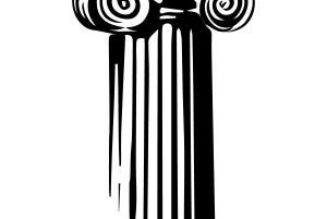
Richard B. Corradi, M.D., is Emeritus Professor of Psychiatry at the School of Medicine of Case Western Reserve University in Cleveland, Ohio. In addition to professional journals, he has been published in general-interest journals such as The Federalist, Public Discourse, and First Things.
The Judeo-Christian assessment of human nature is not a positive one. The Hebrew Bible reads, “The heart is deceitful above all things, and desperately corrupt; who can understand it?” (Jer. 17:9), and the New Testament says, “From within, out of the heart of man, come evil thoughts, fornication, theft, murder, adultery, coveting, wickedness, deceit, licentiousness, envy, slander, pride, foolishness” (Mk. 7:21). And in his Letter to the Romans, St. Paul writes that “all have sinned and fall short of the glory of God” (3:23).
Sigmund Freud recognized the instinctual drives of aggression and sexuality as the core of our humanity. He saw both as the psychic forces that motivate and energize human behavior, as well as the wellspring of the darkest and most sinister aspects of human nature. To his friend, the Swiss pastor Oskar Pfister, he wrote that he didn’t see much good in people, whether or not they subscribed to an ethical doctrine. And of his own psychoanalytic method, Freud’s modest claim (unlike the claims of some of his followers) was that the most it could accomplish would be to turn neurotic misery into ordinary human unhappiness.
Substitute Freud’s “id” for the biblical use of “heart” as the metaphorical repository of the psychic forces that drive human desires and behavior and you have similar views of human nature. The catalog of sins in Mark’s Gospel is illustrative of unbridled expressions of the id’s aggressive and sexual drives.
That aggression and sexuality are basic human drives requires no theoretical justification, nor does the notion that their expression, control, and regulation are intensely problematic, both collectively and individually. Human history is a chronicle of war between states and nations, and conflicts regarding sexuality and its expression have perpetually roiled human society, not least that of contemporary America. Every psychiatrist can testify that helping people deal with their anger and sexuality is a major focus in psychotherapy. Whatever the taint in human nature — called Original Sin in the Christian narrative or Eros vs. Thanatos in the psychoanalytic — controlling the forces of aggression and sexuality is a defining feature of the human experience. In fact, the degree to which these drives are mastered determines the maturity of individuals and the success of groups, from the familial to the national. When asked to define “normality,” Freud was reputed to reply, “The ability to work and to love,” that is, the highest — or, in his terms, “sublimated” — expression of aggression and sexuality, respectively.
Unfortunately, contemporary America demonstrates what happens to a culture when these basic human drives are poorly sublimated. Relativism — the idea that there is no absolute truth or morality, only beliefs held by particular cultures or groups — rejects the idea that history has taught us anything. That there is no historical repository of wisdom governing human behavior, that each generation must, in effect, reinvent the wheel, is an absurdity. Yet such seems to be the principle that underlies the turmoil of contemporary American life. Hotly held and angrily expressed opinions divide Americans on political, racial, class, and gender issues, as well as on issues of sexual morality. We have lost faith in governing institutions that historically have been intergenerational transmitters of our nation’s values and in the religious institutions that have been transmitters of morality.
We have rejected as cultural artifacts of our “unenlightened” past two great truths about human nature that have aided us in controlling the passions of aggression and sexuality. The accumulated wisdom of generations of families, as well as rich knowledge about emotional and mental development, have imparted a fundamental truth about family structure and the rearing of children. Similarly, several millennia of experience with the Judeo-Christian system of values has provided a fundamental and transcendent truth about morality. Family and religion have been the civilizing influences that have shaped Western culture.
Family is the developmental civilizing force. The traditional family is optimal for child-rearing. Children need both a mother and a father. On the face of it, this truth should be obvious. The creation of a child requires both a man and a woman. Regardless of how we alter the process with modern technology — artificial insemination, surrogate mothers, and frozen reproductive material — a sperm and an egg need to come together to bring about new life. This biologic fact is foundational not just for conception and gestation but also for a child’s development after birth. Women are biologically and anatomically constructed not only to give birth but to nurture children as well. A mother’s role, however, goes beyond physical care and feeding. The physical and emotional unity between a mother and the infant suckling at her breast manifests the psychological “nutrients” the mother supplies. In fact, the quality of mothering that infants receive in the first few years of life is crucial in determining their future. The infant-mother bond, normally one of unconditional love, is the foundation upon which a child’s personality is built.
Children form a secure personal identity from their relationship with a dependable, warmly demonstrative, and loving mother. A child who experiences this love will feel cherished and will internalize a sense of being loved, of self-worth. Such a mother engenders a sense of trust in her infant. Her dependability in meeting her child’s needs fosters an expectation that other people will behave in a reasonably dependable manner, that they are also likely to be trustworthy unless they prove otherwise.
Sons, from a very early age, identify with how their fathers manage their anger and express their sexuality. Fathers need to model self-control and mature coping skills in such a way that their sons learn to channel their aggressive energies into productive work and gratifying relationships. And how a boy grows up to treat women is modeled on how his father treated his mother. Sons learn from their fathers the value of a stable, loving, and reciprocal relationship with a woman, as opposed to transient attachments based only on sexual gratification.
Religion is the moral civilizing force. As America has become increasingly secularized, incivility and rancor have become hallmarks of public life. “In God We Trust” was not simply the motto of the United States; it was a statement of common belief. “Trust in God” reflected the conviction that there are universal and transcendent truths, tested over millennia, governing human behavior. Even the unchurched, who may not have believed these truths to be literally God-given, shared in this collective conscience. Until recently, it was generally accepted that Judeo-Christian Scriptures provided a moral system that was passed from generation to generation. In addition to trust in God, this system encompassed an ethic that emphasized individual industry and hard work (mature channeling of the aggressive drive), as well as sexual continence and the sanctity of marriage (mature channeling of the sexual drive). The faith of mothers and fathers in transcendent truths was passed on to their children, faith not only in God but also in themselves and others. Trust in God formed the conscience of parents, which, in turn, was inculcated in children, becoming foundational to their sense of self and a defining feature of their personal identity.
The importance of the relationship between religious values and the development of trust was emphasized by Erik Erikson, a follower of Freud, when he wrote, “Whoever says he has religion must derive a faith from it which is transmitted to infants in the form of basic trust; whoever claims that he does not need religion must derive such basic faith from elsewhere” (Identity and the Life Cycle, 1959). Indeed, this connection is well illustrated by America’s secularization and the lack of basic trust ubiquitous in contemporary American life: between individuals with conflicting opinions on virtually every passionately held belief; in traditional institutions; and, certainly, in politicians and the political process.
©2024 New Oxford Review. All Rights Reserved.
To submit a Letter to the Editor, click here: https://www.newoxfordreview.org/contact-us/letters-to-the-editor/








